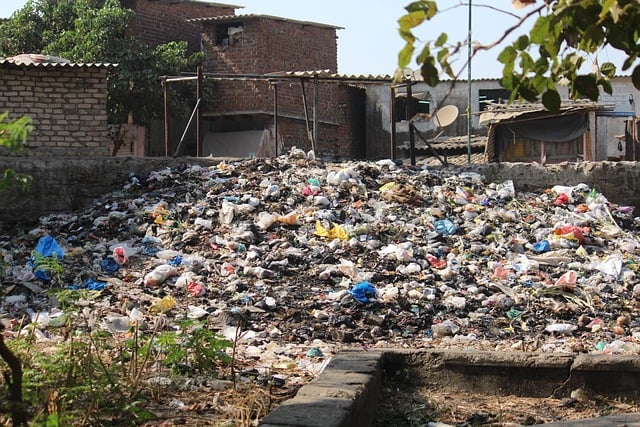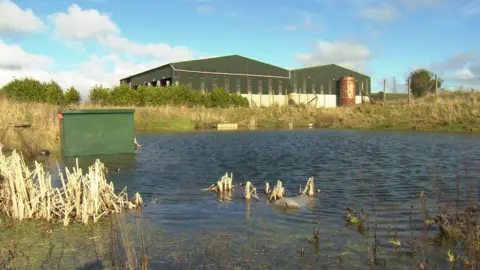
The Cost of Illegal Rubbish Dumping: Lessons to Learn from the Mobuoy Dump Scandal ☣️
Illegal Rubbish Dumping ☣️: This blog explores the Mobuoy Dump scandal as a striking example of the severe consequences that can result from illegal rubbish dumping. Read on to learn more.
Illegal rubbish dumping is a persistent environmental crime that threatens ecosystems, public health and local economies. Around the world, shady waste operators and individuals dispose of waste in unauthorised locations to avoid disposal fees.
This practice not only degrades landscapes but also leads to long-term environmental damage. It undermines formal waste management systems and creates a cycle of neglect and pollution, particularly in vulnerable or under-resourced communities.
One of the most shocking examples of illegal rubbish dumping in recent history is the infamous Mobuoy Dump, an illicit landfill that became a wake-up call for stricter regulations and enforcement.
>Download Now: Free PDF Business Owners Guide To General Waste Bin Services
The Mobuoy Dump scandal: a case study in waste crime
Located near Derry, the Mobuoy Dump event was uncovered in 2012 during an investigation into illegal waste activities. Over the years, an estimated 1 million tonnes of waste had been unlawfully buried at the site, making it one of Europe’s largest illegal dumps.
This waste, consisting of household, commercial and possibly hazardous materials, was disposed of without proper environmental protection. Investigators uncovered evidence of waste being transported under falsified documentation and dumped at the site in breach of legal requirements. This large-scale instance of Mobuoy illegal dumping highlighted the dangers of unregulated waste disposal.
The site’s proximity to the River Faughan, a major source of drinking water for the region, raised serious concerns about contamination. Pollutants from the dump had the potential to leach into the water system, threatening both human health and wildlife.
The sheer scale of the operation shocked regulators, environmentalists and the public alike. The cleanup costs were projected to be hundreds of millions of pounds, highlighting the severe financial burden that illegal rubbish dumping places on governments and taxpayers.
This was not just a local misstep but a systemic failure in monitoring, regulation and enforcement.

Uncovering the loopholes
The Mobuoy Dump exposed critical loopholes in Northern Ireland’s waste management system. The regulatory agencies responsible for monitoring and enforcing environmental standards were either under-resourced or lacked the authority to act swiftly.
There were delays in identifying red flags such as irregular paperwork, unverified waste volumes and suspicious operator behaviour. Moreover, coordination between different levels of government and law enforcement was often inconsistent.
This case highlighted how easily unscrupulous operators could exploit flawed systems. Waste crime can be profitable, especially when disposal fees are high and oversight is low.
In Mobuoy dumping, cutting corners meant that one site was overloaded with years’ worth of illegal rubbish dumping with minimal resistance from authorities.
It underscored the importance of having robust systems in place that not only detect illegal dumping early but also prevent it from escalating to catastrophic levels.
The widespread impact of illegal rubbish dumping
Illegal rubbish dumping is not just a localised issue—it is a global problem with far-reaching consequences. Environmental contamination is one of its most severe effects.
Chemicals and hazardous substances from dumped waste can seep into soil and water sources, causing long-term ecological damage. Wildlife and natural habitats suffer, and in some cases, entire ecosystems are disrupted or rendered uninhabitable.
Public health is also directly at risk. Unregulated waste sites attract vermin such as rats and flies, which are known vectors for disease. Additionally, pollutants can find their way into air and water supplies, leading to respiratory problems, gastrointestinal illnesses and even cancers in extreme cases. These impacts disproportionately affect lower-income communities, where illegal dumps are often located.
The economic burden of illegal rubbish dumping is immense. Governments and municipalities are forced to spend millions on cleanup operations—funds that could otherwise be used for education, healthcare or infrastructure.
The Mobuoy illegal dumping case alone will require extensive remediation work, including soil decontamination and water monitoring for years to come. Insurance premiums for legitimate waste operators may rise due to increased oversight, while taxpayers foot the bill for past failures.
Beyond finances and health, illegal rubbish dumping damages public trust. When citizens see large-scale environmental crimes going unpunished, or perpetrators avoiding meaningful consequences, it erodes faith in regulatory institutions. This disillusionment makes it more difficult to engage the public in sustainable waste practices or to foster a culture of environmental responsibility.
Why tackling it matters now more than ever
In a world increasingly focused on sustainability and circular economies, illegal rubbish dumping represents a direct contradiction to environmental progress.
Whilst many governments and industries are promoting recycling, waste reduction and green technologies, waste crime continues to grow as an underground economy. It hampers legitimate recycling efforts by flooding markets with contaminated materials and undermines the efforts of responsible operators.
The rise of e-waste and complex materials has made waste streams harder to manage.
Illegal dumpers take advantage of this complexity. How do they do this? They do so by offering seemingly cheaper disposal options that in fact pass massive environmental liabilities on to society.
As waste volumes continue to grow, especially in urbanising regions, the need for effective and equitable waste management becomes even more critical.
Preventing illegal rubbish dumping: what can be done?
To combat illegal rubbish dumping, authorities and communities must take proactive and comprehensive steps.
Stronger enforcement and penalties are essential. Fines must be substantial enough to act as a deterrent. Moreover, jail sentences should be considered for repeat offenders or large-scale operators. Finally, environmental enforcement agencies must be properly funded and empowered to act decisively.
Investment in digital tools such as GPS tracking, and blockchain for waste documentation and surveillance systems can revolutionise the way we monitor and manage waste movements. These technologies increase transparency and reduce opportunities for manipulation or fraud. Regular audits of waste operators can further tighten the net on illegal practices.
Public awareness campaigns play a crucial role. Communities need to understand the true cost of illegal rubbish dumping – not just to the environment, but to their own health and wellbeing. Encouraging residents to report illegal activities, offering anonymous tip lines and involving local councils in education programs can create a grassroots defence against waste crime.
Moreover, governments must close legal loopholes and ensure consistent regulation across jurisdictions. This includes harmonising standards between states or regions and removing ambiguities in enforcement procedures. Collaborations between the public and private sectors can also help develop best practices and create incentives for compliance.
Looking to the future: building resilience against waste crime
The Mobuoy Dump scandal should not be seen merely as a historical blunder but as a turning point.
It provides a stark lesson on what can happen when regulation fails, oversight is lax, and criminal elements exploit environmental systems for profit. But it also presents an opportunity: to reform waste management, strengthen our institutions and build public confidence through transparency and accountability.
A resilient waste management system is one that is not only technologically advanced but socially inclusive and legally robust. It integrates all stakeholders—from government to business to local communities—in a shared mission to protect our environment. It prioritises prevention over cleanup and responsibility over convenience.
Illegal rubbish dumping: Waster’s final thoughts
The Mobuoy Dump scandal serves as a powerful reminder of the dangers and long-term costs associated with illegal rubbish dumping. It demonstrates the need for stricter regulations, better enforcement and increased public awareness to prevent similar incidents from occurring. Illegal rubbish dumping is more than an environmental issue—it is a social, economic and moral challenge that demands coordinated and sustained action.
By learning from past mistakes and investing in modern solutions, we can work toward a cleaner, safer and more just waste management system. The legacy of Mobuoy dumping should not be one of shame, but one of transformation. Let it remind us that protecting our environment is a shared responsibility—one that cannot be ignored or postponed.
Contacting Waster
Looking for a specific bin service? Check out our waste recycling shop and find the best deals in terms of pricing and services.
Also, please call 1300 WASTER (1300 927 837), or email us at enquiries@waster.com.au if you have any further questions.
Leave a Reply Cancel reply


